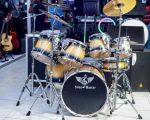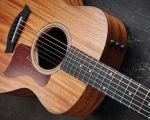
Unlocking the World of Music Theory: Best Books for Beginners
As a beginner in music, the overwhelming world of theory can seem daunting. However, diving into music theory is one of the best investments you can make as a musician. Whether you're learning how to read sheet music, understanding scales, or exploring chord progressions, the right music theory book can make all the difference. Today, I’m here to guide you through some of the best music theory books for beginners that will help demystify this fascinating world and take your musical skills to new heights.
The Role of Music Theory in Your Musical Journey
When I first started learning music theory, I was amazed by how essential it is for building a solid foundation. Music theory isn't just about memorizing rules; it's about understanding the language of music. It allows musicians to communicate through notes, rhythms, and harmonies. It opens up new possibilities for improvisation, composition, and even simply appreciating the music we listen to every day.
Why Beginners Should Start with a Good Music Theory Book
As someone who has been in your shoes, I can tell you that starting with the right book can make learning music theory much easier and more enjoyable. A well-structured music theory book will guide you step-by-step through the basics, ensuring that you don't feel overwhelmed. Here’s why I recommend getting a beginner-friendly book:
- Clear explanations: The best books break down complex concepts into digestible sections, making it easier to understand.
- Step-by-step learning: Starting with the basics and gradually building your knowledge allows you to learn at your own pace.
- Practical examples: A good book will not only explain theory but also give you exercises to reinforce what you’ve learned.
Top Music Theory Books for Beginners
Now, let’s dive into some of the best books that have helped me and countless other musicians develop a deep understanding of music theory.
1. "The Complete Idiot's Guide to Music Theory" by Michael Miller
If you’re just starting, I highly recommend "The Complete Idiot's Guide to Music Theory." I remember reading this book when I first started, and I loved how accessible it was. Miller does a fantastic job of making music theory approachable, even for those who don’t know the first thing about it. The explanations are simple, and it’s full of helpful diagrams and exercises. It’s perfect for beginners who want a structured, easy-to-follow guide to music theory.
2. "Music Theory for Dummies" by Michael Pilhofer and Holly Day
"Music Theory for Dummies" is another excellent choice for beginners. This book covers everything from scales and chords to rhythm and notation. It’s well-organized and uses a lot of real-world examples to make theory come alive. One of the things I love about this book is its practicality. The authors don’t just focus on abstract theory—they show you how to apply what you’ve learned to actual music.
3. "Tonal Harmony" by Stefan Kostka and Dorothy Payne
If you’re looking for something a bit more in-depth, "Tonal Harmony" is a must-read. While it may seem a bit intimidating at first, this book offers a comprehensive look at classical harmony and is a great resource for anyone serious about deepening their music theory knowledge. I used this book to enhance my understanding of harmonic progressions, and it really helped me with both composition and analysis.
4. "How to Read Music in 30 Days" by Matthew Ellul
One of the biggest hurdles I faced when I was starting out was learning to read music. "How to Read Music in 30 Days" is an excellent book to help you tackle this challenge. It’s designed to be a quick, no-pressure way to start reading music. The lessons are concise, and within a month, you’ll feel much more comfortable reading and understanding musical notation.
5. "The Musician's Guide to Theory and Analysis" by Jane Piper Clendinning and Elizabeth West Marvin
If you’re a beginner who already has some basic knowledge of music, this book can take you to the next level. "The Musician's Guide to Theory and Analysis" is ideal for those who want to deepen their understanding of harmony, counterpoint, and formal analysis. I’ve found that it’s especially useful for people who want a more academic approach to music theory while still being accessible to beginners.
Additional Resources to Enhance Your Learning
While books are an invaluable resource, don’t forget to complement your learning with other tools. Here are a few additional resources that I found incredibly helpful during my music theory journey:
- Online Courses: Websites like Coursera and Udemy offer beginner music theory courses that can supplement your reading. These often provide interactive exercises and video lessons, which are great for visual learners.
- Music Theory Apps: Apps like Tenuto and Music Theory Pro offer interactive tools and quizzes that can help you solidify what you’ve learned from your books.
- Practice, Practice, Practice: At the end of the day, the best way to truly learn music theory is to apply it. Spend time practicing the concepts you learn, and don't be afraid to experiment with composing your own music!
The Importance of Patience and Consistency
Learning music theory takes time, and it can sometimes feel like you're drowning in information. I remember feeling frustrated at first, but the key is consistency. Set aside time each day to study, practice, and review. With each new concept, you’ll begin to see how everything fits together, and that’s when the real fun begins.
As you continue your journey, keep in mind that every musician has their own pace. Some might pick up certain concepts quickly, while others might need more time. The important thing is to stay motivated, be patient with yourself, and enjoy the process of discovery. Music theory will not only improve your technical skills but also enrich your overall musical experience.
So, go ahead and pick up one of these books to get started. As you progress, you’ll find that your understanding of music will deepen, and the language of music will become second nature to you.








